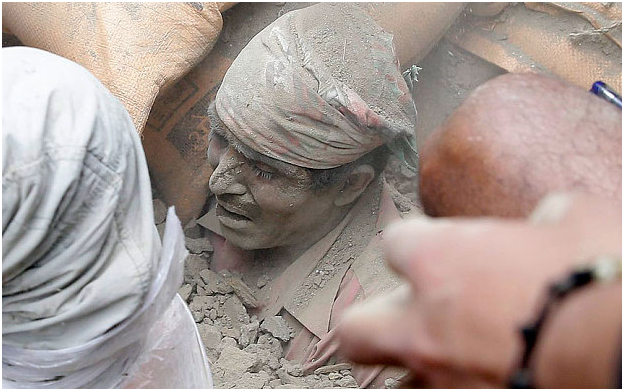Facebook's Disaster Management' Comes of Age in Nepal
Efforts to rescue a man trapped in the rubble of the massive earthquake in Nepal

NEW DELHI: If you logged onto Facebook this weekend, particularly after Saturday’s devastating earthquake in Nepal, you probably received a Facebook notification marking certain friends/acquaintances as “safe.” Those accessing from one of the affected areas, probably have an idea about Facebook’s “Safety Check” -- a feature that the company launched last fall.
"When disasters happen, people need to know their loved ones are safe," Facebook CEO Mark Zuckerberg wrote on his timeline, "It's moments like this that being able to connect really matters."
The handy service enables those in and around the affected area to log-in and mark their status, thereby enabling those in their network to know that all is well (rather, as well as it can be in the circumstances).
As 7.8 magnitude quake rocked Nepal -- the tremors being felt across much of North India -- killing at least 2000 people, social media came to play an indispensable role. Services such as Safety Check helped put family members and friends at ease, as users in the affected areas checked in “safe.”
Others used Facebook to check in with friends/family, with a comment in response prompting a huge sigh of relief.
The feature, however, had a limited impact given the low smartphone penetration in Nepal, and the fact that six out of seven Nepalese are not registered on Facebook. Electricity is unreliable and there were reports of severe power shortages across the country following the earthquake.
Irrespective, the feature will become more and more useful as connectivity grows, and for many in Nepal who do use the internet and Facebook, the usefulness has already been established. The comments on Zuckerberg’s Facebook status update evince this.
Meanwhile, social media was buzzing with heartfelt tweets, status updates, comments and messages resulting in an outpouring of support. #PrayForNepal was trending on Twitter.



